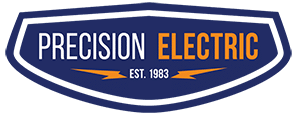Variable Frequency Drive Basics
Variable frequency drives are also known as (VFDs), variable speed drives (VSDs), adjustable speed drives, and inverters.  Variable frequency drives are solid state controllers used in AC or DC electric motor applications. Most variable frequency drives are applied on alternating current (AC) electric motors in the industrial manufacturing world. There are some direct current (DC) electric motor applications that apply variable frequency drives, but most manufacturers seek AC motors because DC motors are expensive and often fail. Variable frequency drives can also be used as a phase converters when three phase motors need to be operated from single phase power.
Variable frequency drives are solid state controllers used in AC or DC electric motor applications. Most variable frequency drives are applied on alternating current (AC) electric motors in the industrial manufacturing world. There are some direct current (DC) electric motor applications that apply variable frequency drives, but most manufacturers seek AC motors because DC motors are expensive and often fail. Variable frequency drives can also be used as a phase converters when three phase motors need to be operated from single phase power.
Variable frequency drives can be used in small appliances, large mills, lathes, air compressors, conveyors, and many other electric motor applications in the industrial manufacturing world. Over 30 percent of the world’s electrical energy is consumed by electric motors in fixed-speed fan, pump, and air compressor applications. The basic idea for using a variable frequency drive on mills, air compressors, and fans is to reduce the amount of electrical energy being consumed which consequently reduces electricity costs on unused power.
Energy Savings
About 3% of the total installed AC electric motors in the United States use variable frequency drives.An estimated 60-65% of electrical energy in the United States is used to supply electric motors, and 75% of that electrical energy is consumed by fan, pump and air compressor applications.
Approximately 18% of the electrical energy used in the 40 million motors in the United States could save power consumption via efficient energy improvement by using variable frequency drives on these electric motor applications.
Performance and Operation
Variable frequency drives are applied to alternating current (AC) electric motors to increase quality control in manufacturing  processes in the industrial manufacturing world. Variable frequency drives increase quality control in the industrial manufacturing world via monitoring the electric motors’ speed, pressure, temperature, torque, and tension.
processes in the industrial manufacturing world. Variable frequency drives increase quality control in the industrial manufacturing world via monitoring the electric motors’ speed, pressure, temperature, torque, and tension.
Fixed-speed electric motor loads subject the electric motor to a high starting torque and electrical current surges that are up to eight times the full-load motor current. When a variable frequency drive is used on an electric motor, the variable frequency drive gradually ramps the electric motor up to full load operating speed, and this decreases mechanical and electrical stress, which minimizes motor maintenance and motor repair costs which ultimately, extends the life of the electric motor and manufacturing equipment.
Variable frequency drives’ unique programming capabilities allow for application specific patterns to minimize electrical and mechanical stress on the electric motors’ they’re operating. Every variable frequency drive manufacturer uses a unique parameter selection designed so that every manufacturing facility can seek out the product designed for their industry.
Repair and Replacement
 The internet has brought high demand of quality repair processes and competitive pricing in the industrial manufacturing world.Maintenance technicians began seeking alternative solutions via the internet for their need of variable frequency drive repair and replacement because maintenance technicians do not always receive the services needed to be a leader in their industry.
The internet has brought high demand of quality repair processes and competitive pricing in the industrial manufacturing world.Maintenance technicians began seeking alternative solutions via the internet for their need of variable frequency drive repair and replacement because maintenance technicians do not always receive the services needed to be a leader in their industry.
A highly trained repair facility is the backbone of successful production. Precision Electric has been repairing industrial electronics, rewinding electric motors, and servicing all other industrial-related equipment since 1982. Customers on the coasts of the United States send Precision Electric repair work everyday such as variable frequency drives, servo motors, servo drives, encoders, printed circuit boards, electric motors, and all other related equipment.
Precision Electric offers free quotes for all repair work and has a reputation for keeping manufacturers’ downtime to an absolute minimum while increasing production processes for 30 years. Equipment repaired by Precision Electric is more reliable than brand new equipment purchased from the manufacturer, because Precision Electric uses the most advanced testing equipment and replaces generic components with the best components in the industry. Precision Electric offers an in-service warranty on all repair work completed. The Precision Electric in-service warranty begins the day repaired work is put into service and ends 12 months thereafter.











